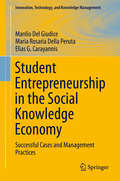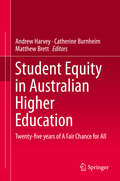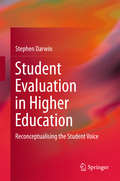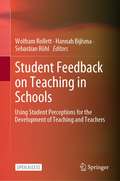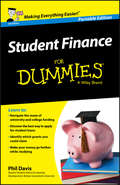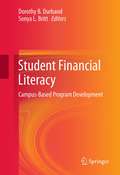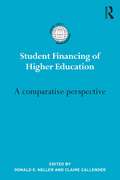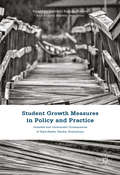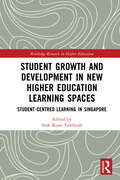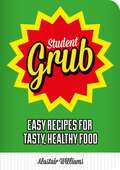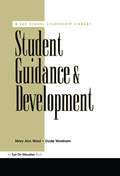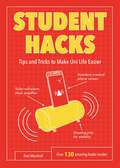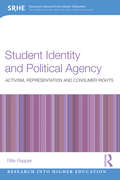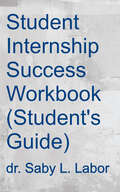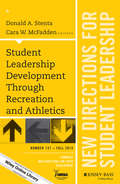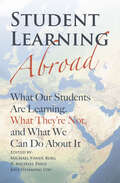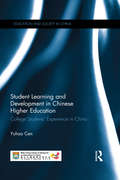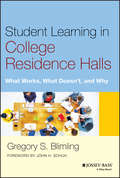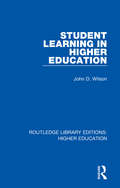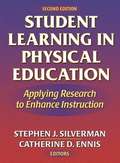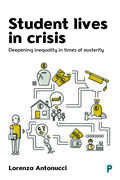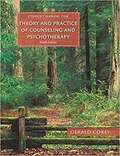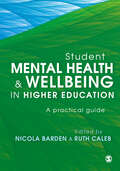- Table View
- List View
Student Entrepreneurship in the Social Knowledge Economy
by Maria Rosaria Della Peruta Manlio Del Giudice Elias G. CarayannisTraditionally, the study of entrepreneurial behavior focuses on such factors as (i) the personality characteristics that distinguish the entrepreneur from non-entrepreneur and (ii) demographic characteristics such gender, age, familiar antecedents and education. With particular respect to investigating the development, acquisition, and dissemination of entrepreneurial skills and behaviors, the authors focus on the university environment, as a locus of research and innovation, where students are exposed to a wide variety of influences that are enhanced by a high degree of connectivity. The underlying theme of this volume is to develop our understanding of the sociology of student entrepreneurial behavior and in doing so attempt to synthesize literature investigating individual talent with the literature on concurrent knowledge sourcing in the pursuit of entrepreneurial activities. Specifically, the authors investigate the degree to which access to diverse knowledge (in addition to such psychological characteristics and tolerance of ambiguity and risk taking) influences the nature and probability of entrepreneurial success. Moreover, they explore the role of social media and social networking in facilitating access to distributed and disparate information and knowledge Their research addresses such timely questions as: Where do entrepreneurial opportunities come from? How can higher education best stimulate the creation of firms emanating from young and smart minds in colleges and universities? What is the value of MOOCs for frequent, early, and "thick" communication among the various specialties needed to accomplish entrepreneurial projects? How do we know whether social media affect students' responses to new knowledge and new ideas? To what extent do educational practices affect racial and ethnic differences in student entrepreneurship? What is the role of the indigenous minority student entrepreneur in establishing high-technology firms? The result is a multi-dimensional approach that sheds light on the dynamics of education, knowledge creation, social networking, innovation and new business development.
Student Equity in Australian Higher Education
by Andrew Harvey Catherine Burnheim Matthew BrettThis book examines twenty-five years of the Australian framework for student equity in higher education, A Fair Chance for All. Divided into two sections, the book reflects on the legacy of equity policy in higher education, the effectiveness of current approaches, and the likely challenges facing future policymakers. The first section explores the creation of the framework, including the major elements of the policy, the political context of its development, and how it compares with international models developed during the same period. The performance of the six student equity groups identified within the framework is also examined. The second section of the book considers future trends and challenges. The Australian university sector has undergone seismic change in the past twenty-five years and faces further changes of equal magnitude. The twenty-fifth anniversary of A Fair Chance for All comes as Australian higher education is poised for another wave of transformation, with rising expansion, competition, and stratification. While the emerging landscape is new, the questions have changed little since A Fair Chance for All was first conceived: How should we define student equity, and what policies are likely to promote it?
Student Evaluation in Higher Education
by Stephen DarwinThis book provides a comprehensive and engaging analysis of the purpose and function of student evaluation in higher education. It explores its foundations and the emerging functions, as well as its future potential to improve the quality of university teaching and student learning. The book systematically assesses the core assumptions underpinning the design of student evaluation models as a tool to improve the quality of teaching. It also analyses the emerging influence of student opinion as a key metric and a powerful proxy for assuring the quality of teachers, teaching and courses in universities. Using the voices of teachers in the day-to-day practices of higher education, the book also explores the actual perceptions held by academics about student evaluation. It offers the first real attempt to critically analyse the developing influence of student evaluation on contemporary approaches to academic teaching. Using a practice-based perspective and the powerful explanatory potential of cultural historical activity theory (CHAT), the implications of the changing focus in the use of the student voice - from development to measurement - are systematically explored and assessed. Importantly, using the evidence provided by a unique series of practice-based case studies, the book also offers powerful new insights into how the student voice can be reconceptualised to more effectively improve the quality of teaching, curriculum and assessment. Based on this empirical analysis, a series of practical strategies are proposed to enhance the work of student evaluation in the future university to drive pedagogical innovation. This unique volume provides those interested in student evaluation with a more complex understanding of the development, contemporary function and future potential of the student voice. It also demonstrates how the student voice - in combination with professional dialogue - can be used to encourage more powerful and substantial forms of pedagogical improvement and academic development in higher education environments.
Student Feedback on Teaching in Schools: Using Student Perceptions for the Development of Teaching and Teachers
by Wolfram Rollett Hannah Bijlsma Sebastian RöhlThis open access book provides a comprehensive and informative overview of the current state of research about student perceptions of and student feedback on teaching. After presentation of a new student feedback process model, evidence concerning the validity and reliability of student perceptions of teaching quality is discussed. This is followed by an overview of empirical research on the effects of student feedback on teachers and instruction in different contexts, as well as on factors promoting the successful implementation of feedback in schools. In summary, the findings emphasize that student perceptions of teaching quality can be a valid and reliable source of feedback for teachers. The effectiveness of student feedback on teaching is significantly related to its use in formative settings and to a positive feedback culture within schools. In addition, it is argued that the effectiveness of student feedback depends very much on the support for teachers when making use of the feedback. As this literature review impressively documents, teachers in their work - and ultimately students in their learning - can benefit substantially from student feedback on teaching in schools. “This book reviews what we know about student feedback to teachers. It is detailed and it is a pleasure to read. To have these chapters in one place – and from those most up to date with the research literature and doing the research - is a gift.” John Hattie
Student Finance For Dummies - UK
by Phil DavisYour guide to financing a university education Navigating the intricacies of financing a UK education can make even the most composed parents and students lose their cool. Luckily, Student Financing For Dummies helps take some of the pain out of the struggle and offers everything you need—in one place—to put a money management plan in place and finance a university education. Packed with accessible guidance from authors throughout the UK who work with students and policy experts, it provides unique, sound and detailed financial advice to help students and their families manage money while at school. Taking the guesswork out of the student-finance process and saving you countless hours of searching on the Internet, this friendly, plain-English guide helps you navigate applying for student finance, student loans and grants, makes sense of subject-specific income like the NHS, Teacher Training and Social Work and more. And after the money is in place, you'll discover how to establish a financial plan to make sure the money lasts—from term to term and through the entire time at uni. Covers student finance in England, Wales, Scotland and Northern Ireland Provides all the options for obtaining finance, loans and more Gives students and parents tips on which credit options to watch out for Offers expert advice on ongoing student finance support, managing income and expenditure and working during study Take the worry out of financing your education and focus on your studies with the help of Student Finance For Dummies.
Student Financial Literacy
by Sonya L. Britt Dorothy B. DurbandCollege students are particularly vulnerable to making poor financial decisions. One method of addressing personal finances and financial stress among students of higher education is through university based financial education programs. Student Financial Literacy: Program Development presents effective strategies to assist in the implementation or the enhancement of a program as a tool to improve students' educational experience and financial well-being. It presents the key components of financial education programs designed to address the growing concerns associated with high levels of debt and low levels of financial literacy among college students.
Student Financing of Higher Education: A comparative perspective (International Studies in Higher Education)
by Donald E. Heller Claire CallenderThe financing of higher education is undergoing great change in many countries around the world. In recent years many countries are moving from a system where the costs of funding higher education are shouldered primarily by taxpayers, through government subsidies, to one where students pay a larger share of the costs. There are a number of factors driving these trends, including: A push for massification of higher education, in the recognition that additional revenue streams are required above and beyond those funds available from governments in order to achieve higher participation rates Macroeconomic factors, which lead to constraints on overall government revenues Political factors, which manifest in demands for funding of over services, thus restricting the funding available for higher (tertiary) education A concern that the returns to higher education accrue primarily to the individual, rather than to society, and thus students should bear more of the burden of paying for it This volume will help to contribute to an understanding of how these trends occur in various countries and regions around the world, and the impact they have on higher education institutions, students, and society as a whole. With contributions for the UK, USA, South Africa and China this vital new book gives a truly global picture of the rapidly changing situation
Student Growth Measures in Policy and Practice
by Kimberly Kappler Hewitt Audrey Amrein-BeardsleyThis book examines the intersection of policy and practice in the use of student growth measures (SGMs) for high-stakes purposes as per such educator evaluation systems. The book also focuses on examinations of educators' perceptions of and reactions to the use of SGMs; ethical implications pertaining to the use of SGMs; contextual challenges when implementing SGMs; and legal implications of SGM use. The use of student test score data has been the cornerstone of the recent transfiguration of educator evaluation systems in forty-two states and the District of Columbia. Three leading voices on SGMs--Sean Corcoran, Henry Braun, and David Berliner--also serve as section and concluding commentators.
Student Growth and Development in New Higher Education Learning Spaces: Student-centred Learning in Singapore (Routledge Research in Higher Education)
by Siok Kuan TambyahLearning spaces are an increasing area of debate in higher education studies, as universities attempt to develop holistic forms of education that connect epistemological areas. Focusing on faculty-student collaborative learning in residential colleges in Singapore, this book carefully examines how we can enable students to grow and develop, not just as workers for the global marketplace but also as unique individuals. Showcasing the diversity of programs and initiatives that contribute to student learning outcomes, the volume draws upon the real-world experiences of educators and students. Contributors examine the benefits and challenges of crafting and implementing innovative programs and activities focused on the technologies of learning, interdisciplinary thinking, experiential learning, community engagement and authenticity. Students, working with one another, their teachers and community partners, also play a pivotal role in co-creating their learning journeys. The chapter authors provide their critical reflections on how the experiences and lessons learnt may apply to other learning spaces in higher education (including online and blended spaces). This edited volume will be relevant to any educator, researcher or student interested in creative learning spaces, and innovative programmes and activities that bring together students, educators and community partners.
Student Grub: Easy Recipes For Tasty, Healthy Food
by Alastair WilliamsClear away the clutter of takeaway tins with this fresh edition of the Student Grub cookbook – the original (and best!) cookbook for university newbies. This easy-to-follow guide contains everything from basic recipes to world cuisine – from conjuring up a post-pub snack to impressing your date with a three-course culinary spectacular.
Student Grub: Easy Recipes For Tasty, Healthy Food
by Alastair WilliamsClear away the clutter of takeaway tins with this fresh edition of the Student Grub cookbook – the original (and best!) cookbook for university newbies. This easy-to-follow guide contains everything from basic recipes to world cuisine – from conjuring up a post-pub snack to impressing your date with a three-course culinary spectacular.
Student Guidance & Development
by Dode Worsham Mary Ann WardThis book provides information about best practices in guidance and counseling. It provides examples of innovative programs which meet students' personal needs, such as school-wide discipline programs, peer mediation, student activities. etc.
Student Hacks: Tips and Tricks to Make Uni Life Easier
by Dan MarshallThis manual covers everything from making your student loan stretch further and revision hacks to fitting more beer bottles in your fridge. Whether you’re a fresh-faced fresher or a seasoned student searching for shortcuts, this trusty guide will make your uni life easier, more productive and more fun.
Student Identity and Political Agency: Activism, Representation and Consumer Rights (Research into Higher Education)
by Rille RaaperExamining the intersections of education, sociology and politics, Student Identity and Political Agency provides a unique, research-informed account of the student experience in a contemporary higher education setting. By drawing on current societal context, this book has a two-fold aim: to unpack and discuss student identity in higher education, and to identify opportunities to influence positive educational and social change. This essential text encourages readers to critically examine and explore: the marketisation and massification of higher education, the homogenising model of consumerism in higher education and the impact this holds upon the diversity of the student population, the positioning of youth and student-hood in our higher education systems, past and present forms of student political agency – protest, unionism and consumer rights – in an attempt to influence positive change. Informed by recent research, this is a crucial read for academics and researchers who specialise in the field of student identity and experience, or, more broadly, in higher education transformations. This book provides a timely and academically rigorous account of contemporary student identity and agency in the global context of higher education.
Student Internship Success Workbook (student's Guide): 20+ Lessons And Activities For Student Intern Career Readiness
by Saby LaborThe Student Internship Success Workbook, 2nd edition - Student's Guide is a time- and energy-saving 16-week career readiness workbook that maximizes the personal and professional development of student interns and student employees. The Student Internship Success Workbook, 2nd edition is intended to provide students with new content to grow their capacities as a student and professional in order to strengthen their practice of habits that will provide the foundation for their success in the years to come.
Student Leadership Development Through Recreation and Athletics: New Directions for Student Leadership, Number 147 (J-B SL Single Issue Student Leadership)
by Donald A. Stenta Cara W. McFaddenDeveloping college students’ leadership capacity has become an essential outcome in higher education over the past decade. Collegiate recreation and intercollegiate athletics are two unique environments that often integrate leadership development initiatives. This volume explores the developing leadership capacity of students in recreation and athletic settings and includes: a variety of conceptual frameworks, including the Social Change Model of Leadership Development, practical approaches for creating leadership education initiatives, discussions of the difficulties students face transitioning from high school to college, and literature and resources for assessing leadership development occurring in recreation and athletics. This volume provides a great resource for practitioners and educators to positively influence the leadership development of students throughout their time at the university. The Jossey-Bass quarterly report series New Directions for Student Leadership explores leadership concepts and pedagogical topics of interest to high school and college leadership educators. Issues are grounded in scholarship and feature practical applications and best practices in youth and adult leadership education.
Student Learning Abroad: What Our Students Are Learning, What They’re Not, and What We Can Do About It
by Michael Vande Berg R. Michael Paige Kris Hemming LouA central purpose of this book is to question the claims commonly made about the educational benefits of study abroad. Traditional metrics of enrollment increases and student self-report, and practices of structural immersion, are being questioned as educators voice growing uncertainty about what students are or are not in fact learning abroad. This book looks into whether these criticisms are justified—and what can be done if they are.The contributors to this book offer a counter-narrative to common views that learning takes place simply through students studying elsewhere, or through their enrolling in programs that take steps structurally to “immerse” them in the experience abroad.Student Learning Abroad reviews the dominant paradigms of study abroad; marshals rigorous research findings, with emphasis on recent studies that offer convincing evidence about what undergraduates are or are not learning; brings to bear the latest knowledge about human learning and development that raises questions about the very foundations of current theory and practice; and presents six examples of study abroad courses or programs whose interventions apply this knowledge. This book provokes readers to reconsider long-held assumptions, beliefs and practices about teaching and learning in study abroad and to reexamine the design and delivery of their programs. In doing so, it provides a new foundation for responding to the question that may faculty and staff are now asking: What do I need to know, and what do I need to be able to do, to help my students learn and develop more effectively abroad? Contributors:Laura BathurstMilton BennettGabriele Weber BosleyJohn EngleLilli Engle Tara HarveyMitchell HammerDavid KolbBruce La Brack Kris Hemming LouKate McClearyCatherine MenyhartR. Michael PaigeAngela PassarelliAdriana Medina-López PortilloMeghan QuinnJennifer Meta RobinsonRiikka SalonenVictor SavickiDouglas StuartMichael Vande BergJames ZullWhile the authors who have contributed to Student Learning Abroad are all known for their work in advancing the field of education abroad, a number have recently been honored by leading international education associations. Bruce La Brack received NAFSA’s 2012 Teaching, Learning and Scholarship Award for Innovative Research and Scholarship. Michael Paige (2007) and Michael Vande Berg (2012) are recipients of the Forum on Education Abroad’s Peter A. Wollitzer Award.
Student Learning and Development in Chinese Higher Education: College students' experience in China (Education and Society in China)
by Yuhao CenThis book provides an essential source for higher education teachers and student affair professionals in China and around the globe, who seek to deepen their understanding of Chinese undergraduate students they work with so as to promote their learning and development. Drawn from interview data with 64 college students in five colleges along with survey data with more than 23,000 students from 21 institutions in mainland China, this book examines student learning and college experiences from the students’ own perspectives. Researchers with a focus on Chinese higher education have reported on large-scale student surveys that have sprouted in recent years. While these surveys facilitate national and international comparison, uphold academic rigor and shift institutional attention towards student learning, this book will investigate the same important topic but with a different approach that seeks to understand college student life as told by themselves. Beyond Subject Matters: What I Have Learned in College? Student Learning and Development in Curricular Programs Student Learning and Development in Co-curricular and Extra-curricular Activities Student Learning and Development at Work, at Play and in Relationships c
Student Learning in College Residence Halls
by Gregory S. BlimlingAdd value to the student experience with purposeful residential programsGrounded in current research and practical experience, Student Learning in College Residence Halls: What Works, What Doesn't, and Why shows how to structure the peer environment in residence halls to advance student learning. Focusing on the application of student learning principles, the book examines how neurobiological and psychosocial development influences how students learn in residence halls. The book is filled with examples, useful strategies, practical advice, and best practices for building community and shaping residential environments that produce measureable learning outcomes. Readers will find models for a curriculum-based approach to programming and for developing student staff competencies, as well as an analysis of what types of residential experiences influence student learning. An examination of how to assess student learning in residence halls and of the challenges residence halls face provide readers with insight into how to strategically plan for the future of residence halls as learning centers.The lack of recent literature on student learning in college residence halls belies the changes that have taken place. More traditional-age students are enrolled in college than ever before, and universities are building more residence halls to meet the increased demand for student housing. This book addresses these developments, reviews contemporary research, and provides up-to-date advice for creating residence hall environments that achieve educationally purposeful outcomes.Discover which educational benefits are associated with living in residence hallsLearn how residential environments influence student behaviorCreate residence hall environments that produce measureable learning outcomesMonitor effectiveness with a process of systematic assessmentResidence halls are an integral part of the college experience; with the right programs in place they can become dynamic centers of student learning. Student Learning in College Residence Halls is a comprehensive resource for residence hall professionals and others interested in improving students' learning experience.
Student Learning in Higher Education (Routledge Library Editions: Higher Education #34)
by John D. WilsonOriginally published in 1981 Student Learning in Higher Education fills an important gap by bringing together in a concise and readable form, research from Britain, the USA and elsewhere, and by discussing the curricular implications for staff who wish to assist their students to see meaning in their studies. It focuses on issues of general relevance, explores major research questions and outlines different methodologies and approaches. It discusses what is meant by ‘meaningful’ learning and describes typical learning tasks encountered by arts and science students. It looks at how students decide what to study on a course and how assessment demands shape both their perceptions of what should be learned, and their study behaviour. As well as considering the ways in which students change and develop over their years in college, the book also discusses the relative importance of teaching and informal influences, such as the student peer group. This book attempts to provide a ‘state of the art’ review of the literature in a field of central concern for all who prepare students for, or work within, higher education.
Student Learning in Physical Education: Applying Research to Enhance Instruction, 2nd Edition
by Stephen J. Silverman Catherine D. EnnisThis book provides the latest research on physical education curriculum, teaching, and teacher education and shows physical educators how to apply this knowledge to their day-to-day practices.
Student Lives in Crisis: Deepening Inequality in Times of Austerity
by Lorenza AntonucciIn the greatest social change of the last twenty years about half of Europe’s young people now attend university. Their lived experiences are however largely undocumented. Antonucci travelled across six cities and three European countries – England, Italy and Sweden – to provide the first ever comparison of the lives of university students across countries and socio-economic backgrounds. Contrasting students’ resources and backgrounds, this original work exposes the profound social effects of austerity and the financial crisis on young people. Questionnaires and first person interviews reveal that, in contrast with what assumed by HE policies, participating in university exacerbates inequalities among young people. This work is a wake-up call for re-thinking the role of higher education in relation to social justice in European societies.
Student Manual For Corey's Theory And Practice Of Counseling And Psychotherapy
by Gerald CoreyThis manual contains structured self-awareness exercises that help you gain a deeper self-understanding and grasp the concepts of the various approaches.
Student Mental Health and Wellbeing in Higher Education: A practical guide
by Nicola Barden Ruth CalebGood mental health is essential for students to manage the challenges that university life presents. This book offers pragmatic guidance to support academic and student services staff in engaging with this critical issue, both in terms of being proactive within their role to promote a positive approach to wellbeing, and understanding how to care appropriately for students who may not be flourishing in the university environment. Key topics include: · The pressure points and transitions of student life · The crucial role of departmental and academic staff · How to make mental health policies work · The legal obligations and limits of student support · Creating the conditions for confident support
Student Mental Health and Wellbeing in Higher Education: A practical guide
by Nicola Barden Ruth CalebGood mental health is essential for students to manage the challenges that university life presents. This book offers pragmatic guidance to support academic and student services staff in engaging with this critical issue, both in terms of being proactive within their role to promote a positive approach to wellbeing, and understanding how to care appropriately for students who may not be flourishing in the university environment. Key topics include: · The pressure points and transitions of student life · The crucial role of departmental and academic staff · How to make mental health policies work · The legal obligations and limits of student support · Creating the conditions for confident support
